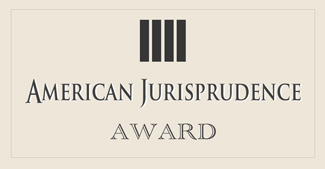Top-Rated Theft Attorney: Fighting Theft Charges in Utah
When it comes to theft, Utah generally ties the punishment to the value of the item that was stolen. Stealing something worth $100 is obviously less of an issue than stealing something worth $10,000, after all. However, the categories are broad and even the lowest level of punishment involves up to 6 months of jail time. That means you really need an attorney to help you face any theft charge.
Table of Contents
The Best-Rated Criminal Defense Lawyers in Utah Will Protect Your Rights and Quality of Life
Some people think lawyers only take big-shot cases where lots of money is involved, but we have Shoplifting Attorneys as well as Attorneys who specialize in embezzlement, petty theft lawyers as well as grand theft auto experts. It’s our creed that if you’ve been charged with petty theft, then you need a petty theft lawyer and we’ll make sure you get one.
Theft Charges in Utah
Utah’s legal code recognizes four broad categories of theft: embezzlement, burglary, robbery, and theft of services. Punishment for all types of theft is the same and is based on the monetary value of what was stolen. From least to greatest, the severity of the crime is as follows:
- Less than $500 — Class B misdemeanor
- Between $500 and $1,499 — Class A misdemeanor
- Between $1,500 and $4,999 — third-degree felony
- $5,000 or more — second-degree felony
If you are convicted for theft, you may also face one or more civil liability suits for reparations. Whether or not you face such a suit will not reduce any potential fines the criminal court orders you to pay.
Here’s a quick breakdown of more complicated forms of theft:
Theft – Embezzlement
Embezzlement is a kind of property theft. It happens when a defendant steals property, whether in part or whole, that they were entrusted to manage for their own personal gain. This can occur in a variety of different ways, such as when:
- An employee of a company uses company money for their own benefit.
- A family member takes money from a relative that they are caring for.
- Professionals in charge of maintaining investments steal the money for themselves.
Theft – Burglary
Burglary is defined as unlawfully entering or remaining on private property with the intent to commit theft. There needs to be sufficient proof that the defendant entered or remained inside a home or building illegally with the intent to steal. If nothing was actually stolen, then it’s considered attempted burglary. If someone gets injured during the burglary, then it’s aggravated burglary.
Theft – Robbery
The difference between burglary and robbery is that burglary involves no violence or threat of violence linked to the theft. Robbery is the act of taking items from another person by force, threat of force, or by putting the victim in fear of immediate harm even if no clear threat was made. If, during the robbery, a deadly weapon is used or a person is injured, it’s considered an aggravated robbery.
Theft of Services
In Utah, theft of services is defined as obtaining services by deception, threat, or force that a defendant knows are available only in return for compensation. In terms of sentencing, Utah does not differentiate between theft of services and theft of tangible property.
Retail Theft
According to Utah statutes, retail theft occurs when a person steals property from a store. This generally covers products for sale and commercial properties such as shopping carts. Unsuccessful attempts to steal are also covered under the law, especially in cases where the person failed because they were detained before leaving. Attempts to alter or remove price labels to pay less money for an item also constitute retail theft.
The statutes allow a retail organization to detain any person they reasonably suspect of theft. During this detaining period, the merchant has the right to investigate theft and request and verify identification. Merchants must contact law enforcement or a parent/guardian immediately if the offender is a minor.
Retail thefts are punishable under the same statutes governing theft charges in Utah. Offenses are largely classified and punished according to the value of the item stolen. Specifically, stealing a firearm, motor vehicle, or any item valued over $1500 can be punished as a felony. Repeat offenders can have lower-valued thefts charged as felonies. Depending on the value of the items stolen, punishments can include incarceration, restitution, and fines.
Call the Wasatch Defense Attorneys to Schedule a Free No-Obligation Theft Case Review With a Theft Lawyer in Downtown Salt Lake City, Utah
Call the Wasatch Defense Attorneys to Schedule a Free No-Obligation Theft Case Review With a Theft Lawyer in Downtown Salt Lake City, Utah
Theft by Deception
Theft by deception means acquiring property of value through an act of intentional trickery or dishonesty. The statutes cover any communication that includes intentional exaggeration of the value or nature of property. The communication can be directed at one person, a group, or the public. The act of dishonesty and the receipt of property does not have to happen in one transaction.
Theft by deception statutes do not include acts of dishonesty that are motivated by something other than the potential to receive property of significant financial value. Dishonest communications must also be likely to deceive ordinary people within the target audience.
Punishments for theft by deception are classified as infractions, misdemeanors, or felonies according to the Utah statutes covering acts of theft. If found guilty, sentences can include incarceration, restitution, and fines.
Credit Card Theft
Credit card theft statutes cover any cards used in transactions, including debit, credit, and telephone credit cards. Offenders can be charged for a number of crimes related to unlawfully getting or using a card, including:
- Knowingly using a fake, altered, expired, or stolen card to obtain something of value.
- Knowingly using any information from a credit card or credit account to obtain something of value.
- Intentionally exceeding the allotted credit limit by more than $500 or 50% more than the credit limit.
- Knowingly making false statements during an application process in order to receive a credit card or credit account.
- Intentionally understating financial debts in order to obtain a credit card.
- Use of a credit card without the authorization of the account owner.
In addition, the statutes also make it a felony to sell, transfer, or receive stolen or unauthorized credit cards. An offender can be charged even if they do not personally use the cards to obtain something of value. Simply selling or receiving unauthorized cards is enough to be charged with a felony. The statute includes additional penalties for transfers of more than 100 cards.
Identity Theft
Identity theft occurs when someone deliberately uses another person’s personal information, such as their name, Social Security number, or credit card details, without their consent, usually for financial gain. This crime can cause significant harm to the victim, leading to financial losses, damaged credit, and emotional distress.
If You’ve Been Charged With Identity Theft In Utah, Contact the Wasatch Defense Lawyers to Setup a Free Theft Case Review in Downtown Salt Lake City, Utah
Facing Theft Charges in Salt Lake City, Utah?
Being accused of theft can be a stressful and overwhelming experience but it’s important to remember that everyone is innocent until proven guilty under the law, and there are steps you can take to protect yourself and your rights.
First and foremost, hire a skilled criminal defense attorney as soon as possible. An experienced attorney can provide guidance and help build a strong defense strategy tailored to your specific case. They can also advise you on what to say and what not to say to law enforcement officers and other officials.
It is also important to refrain from speaking about the incident with anyone other than your attorneys. This includes posting about it on social media or discussing it with friends and family members. Anything you say can potentially be used against you in court, so it is best to remain silent until you have legal representation.
Additionally, gather any evidence or information that could be helpful to your case. This could include eyewitness testimony, video footage, or any documentation that proves your innocence. Your attorney can help you determine what evidence is relevant and useful.
Finally, remain calm and cooperative throughout the legal process. Keep in mind that the legal system moves slowly and can be frustrating, but it is important to trust in the process and let your defense attorney handle the details.
In conclusion, being accused of theft can be a nerve-wracking experience, but it is essential to take the right steps to protect your rights and your future. By hiring an experienced criminal defense attorney, remaining silent until you have legal representation, gathering evidence, and remaining calm throughout the legal process, you can increase your chances of a favorable outcome in your theft case.
Theft Defense Lawyers
No matter what theft charges you’re accused of, our Utah defense attorneys here at Wasatch Defense Attorneys are the skilled experts you need on your side. We are dedicated and caring experts who aggressively defend our clients and their quality of life. Defending yourself in court can be long and stressful. We make it easier by giving you the attention you deserve and the experience you need.
Call the Wasatch Defense Lawyers at (801) 980-9965 to Schedule a Free Theft Case Consultation Today.
- North Salt Lake
- Salt Lake City
- South Salt Lake
- Centerville
- Bountiful
- West Bountiful
- Woods Cross
- Millcreek
- Murray
- Midvale
- West Valley City
- West Jordan
- Taylorsville
- Kearns
- Holladay
- Sandy
- Draper
- Cottonwood Heights




